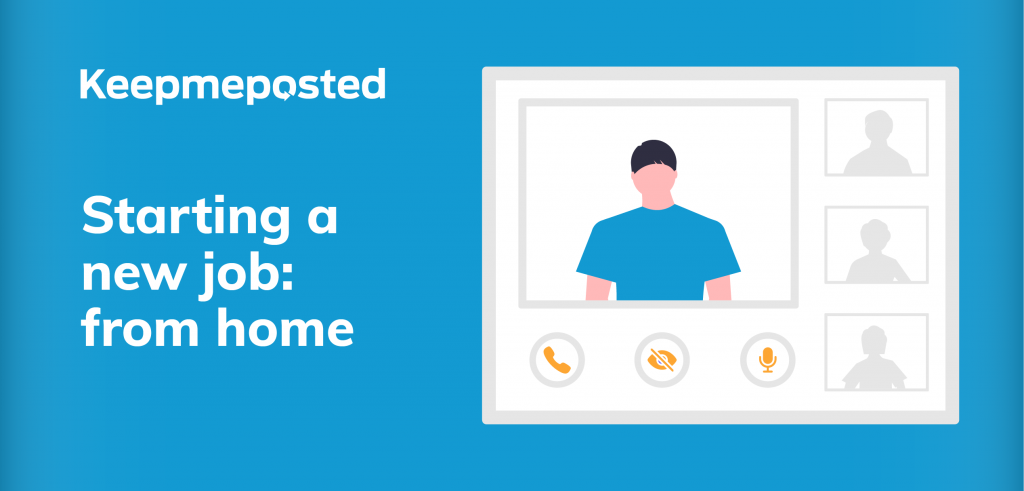Despite what it may feel like, the job market didn’t come to a halt. Whilst there has been a shuffle, with some industries taking the biggest hit and others a small tumble, the employment market didn’t come to a halt. Some segments are recruiting more than ever, with some jobs seeing an increase in demand. Although companies may have had to rethink their recruitment and hiring strategy – executing interviews virtually, shuffling teams, changing schedules, and implementing Work from Home policies, people are still being hired.

However, starting a new job from home may present its challenges. Given the situation, chances are that no one prepared an onboarding process for a situation like this. First day jitters are normal, but what does that mean when your first day is remote? What will this mean if you’re not able to meet your manager or colleagues for a while? What will you need to deal with?
Your onboarding process will be different: ask ahead.
To avoid any first-day glitches and mishaps, recognise that this is a tricky time for everyone – including your manager. Thinking about and planning your onboarding process may have not been at the top of their list given the situation. Reach out ahead of time and show interest, ask how the logistics of it will be handled. Will you need to go anyway to pick up your laptop? Your job may not have originally been designed to be remote, so no harm done in asking ahead. Patience is a virtue, especially in times like these. Be patient with your colleagues, remain flexible and remember – you were hired for a reason! Be understanding with yourself, and give yourself time.
Ask for a meeting
Be pro-active and understand expectations. Of course, you cannot read minds so setting up a meeting with your immediate superior and any other team members if any will help you get started on the right foot. Review your task plan with your manager and ask for deadlines to deliverables. Don’t shy away from asking for a meeting with colleagues. It’s not news that each organisation has a culture of its own, its own jargon – possibly unheard of elsewhere, its own rituals and norms that are not found in any onboarding manual. Onboarding virtually means you may miss out on social cues unique to that organisation. You may miss out on chance encounters in the hallway or at the watercooler. Scheduling a meeting, even a short 10-15 minute introduction with a colleague will hardly completely make up for this but it will definitely help break the ice and help you ease in your first few weeks. You can ask what they’re working on, or their collaboration to the team, how long they’ve worked there and their goals and priorities.
Introduce yourself
When you’re still new at the office, chance encounters at the lift or stairs or as you make yet another coffee will help you. It’s easier to remember someone’s name or what they do when their face becomes familiar around the office. Sending an email to ask someone for something is also easier when they’ve put a face to the name. Take your time to introduce yourself once or twice in emails. Start with your name and your position in the company. If you need help, don’t wait for offers – not everyone might notice your confused expressions – outwardly ask. People are generally more willing to help than they seem.
Keep a question log
Rather than asking about every little thing that might come up, risking something to get lost in all the noise. Chances are who you’re asking has a million things on their plate. Combine everything and ask in one email or meeting. This will allow for every question to be addressed and answered when the time is right for the respondee.
Find your guides
When you’re at the office, finding someone you can rely on to ask questions about the company’s procedures or who does what is relatively easy. When your first days are virtual this is a tougher call. Your starting point could be – who was at your interview? There might be someone in Human Resources who is more than willing to help. Reach out.
Know someone who’s starting a new job remotely? Reach out and share this with them.


